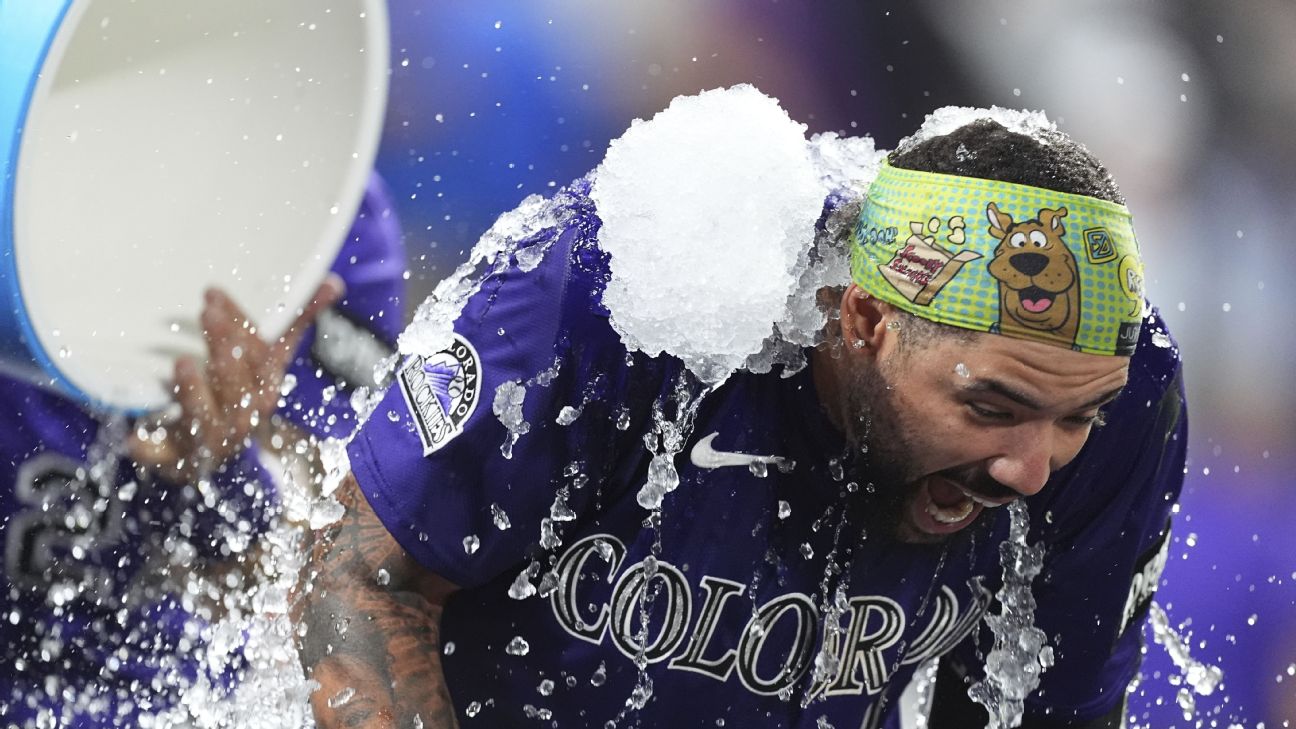Did Fan Interference Cost Xander Bogaerts a Home Run Against the Giants?

The Intricacies of Fan Interference in Baseball: Understanding Rule 6.01(e)
Attending a baseball game is often a mix of excitement, camaraderie, and unpredictability. Fans flock to stadiums, not only for the thrill of the game but also for the chance to witness extraordinary moments that make baseball unique. Recently, a situation at San Diego's Petco Park highlighted just how intricate and, at times, controversial the rules of baseball can be, particularly when it comes to fan interference. This article delves into the circumstances surrounding the recent incident involving Xander Bogaerts of the San Diego Padres, illustrating how fan interference can alter the course of a game.
The Incident: A Fly Ball and a Controversial Call
On a memorable Monday night, Padres shortstop Xander Bogaerts launched a powerful fly ball deep into left field. Initially ruled a home run, the ball appeared to slip out of Giants left fielder Heliot Ramos’ glove and into the stands, a moment that sent the crowd into a frenzy. However, the jubilation was short-lived as the play was reviewed, and the ruling was overturned due to fan interference.
The crux of the controversy stemmed from the actions of a fan who, while attempting to catch the ball, reached out over the field of play. Although the fan did not physically touch the ball, the umpire determined that the interference had occurred, leading to Bogaerts being ruled out. This decision sparked debate about the nuances of the rules and their implications for both players and spectators.
Understanding Rule 6.01(e): The Basis for the Ruling
The foundation for the umpire's decision lies in Rule 6.01(e) of Major League Baseball, which addresses spectator interference during a game. The rule states:
"When there is spectator interference with any thrown or batted ball, the ball shall be dead at the moment of interference, and the umpire shall impose such penalties as in his opinion will nullify the act of interference."
This rule is quite broad and allows umpires to use their discretion when determining whether interference has occurred. In this case, the umpire ruled that the fan’s actions clearly obstructed Ramos from making a catch, which is essential for determining interference. The Approved Ruling under the rule further clarifies that if a fan's actions prevent a fielder from making a catch, the umpire is obligated to declare the batter out, which is exactly what happened in this scenario.
The Dynamics of Fan Interference
Fan interference in baseball is a nuanced topic that can lead to heated discussions among fans, players, and coaches alike. There are several factors to consider when discussing fan interference:
- Physical Contact: While physical contact with the ball or fielder is a clear indication of interference, the absence of contact does not automatically absolve the fan from culpability.
- Intent and Distraction: The intent behind the fan's actions plays a role. If the fan's movements are deemed distracting to the fielder, this can be interpreted as interference.
- Umpire Discretion: Umpires have the final say, and their interpretation of the rules can vary from one situation to another.
Comparing Baseball and Football: The Face-Guarding Analogy
Interestingly, the situation can be likened to the "face-guarding" penalty in football, where a player can be penalized for obstructing another player's ability to make a play without physically making contact. In both sports, the emphasis is on the impact of distraction and the extent to which one player (or fan) can interfere with another’s ability to perform their role effectively.
In the case of Bogaerts’ fly ball, the sheer presence and movement of the fan were sufficient for the umpire to determine that interference had occurred. This ruling showcases the fine line that exists in sports between fair play and obstruction, demonstrating how the human element of officiating plays a crucial role in the game.
The Consequences of the Call
The aftermath of the ruling saw Padres manager Mike Shildt ejected for arguing against the call. This highlights another layer of complexity in baseball: the emotional investment of players and coaches in the game and their reactions to controversial calls. Ejections often serve as a reminder of the high stakes involved, both on the field and in the dugout.
Lessons Learned: The Importance of Sportsmanship
While the incident at Petco Park was certainly controversial, it also serves as a reminder of the importance of sportsmanship for both players and fans. The excitement of a game can sometimes lead to impulsive actions, but understanding the rules—and the spirit behind them—can enhance the experience for everyone involved. Fans should strive to support their teams while also respecting the integrity of the game.
Conclusion: Embracing the Unpredictability of Baseball
Baseball is a game rich with tradition, excitement, and a level of unpredictability that keeps fans coming back for more. The recent incident involving Xander Bogaerts and the ruling of fan interference serves as a poignant reminder of the complexities of the sport. It showcases how the actions of a single fan can have ripple effects throughout the game, influencing outcomes and the emotions of players and spectators alike.
As fans, we embrace the rollercoaster of emotions that comes with each game, knowing that at any moment, we could witness something unprecedented. The next time you’re at the ballpark, consider the rules, the players, and the fans around you. How can we all contribute to a positive and fair environment while enjoying the thrill of the game? Perhaps it’s time to reflect on our role as supporters and how we can elevate the experience for everyone at the ballpark.
FAQs About Fan Interference in Baseball
What constitutes fan interference in baseball?
Fan interference occurs when a spectator’s actions either directly or indirectly prevent a player from making a catch or play on a live ball. This can include physical contact or distracting movements that impede the player’s ability to perform.
Can a fan be penalized for interfering with a game?
While fans generally are not penalized directly, their interference can lead to rulings that affect the game, such as declaring a batter out or nullifying a home run. The umpire has the authority to make these determinations based on the situation.
How does umpire discretion play a role in fan interference calls?
Umpires have the discretion to interpret the rules based on the specific context of the play. Their judgment is crucial in determining whether interference has occurred, considering factors such as the fan's actions and their impact on the game.
As we continue to celebrate the spirit of baseball, let’s remember that every game is a new opportunity for unforgettable moments—ones that remind us why we love the sport. What are some of your favorite unforgettable moments at the ballpark? #Baseball #FanExperience #Sportsmanship
Published: 2025-08-19 03:22:00 | Category: Trump GNEWS Search



